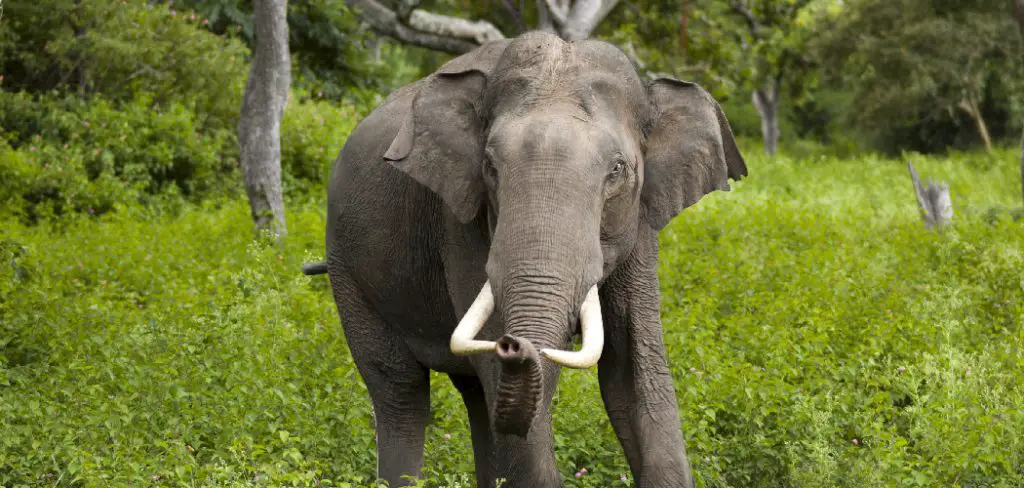The Indian elephant holds a place of great reverence and spiritual power across Asia, especially within India. Renowned for its majestic presence and intelligence, this gentle giant has been intricately woven into the fabric of spirituality, mythology, and daily life for centuries. Its image dominates art, legends, and religious practices, notably in Hinduism and Buddhism, where it has served as a symbol of divinity, strength, and wisdom. From sacred processions to grand temple carvings, the Indian elephant stands as a living link between the earthly and the divine, signifying royalty and spiritual enlightenment.

In this comprehensive guide, we explore the Indian Elephant Spiritual Meaning, Symbolism, and Totem in detail. We examine its unique place in mythology, the powerful messages it brings as a spiritual guide, and actionable ways to honor its wisdom in modern life. Whether you seek a deeper understanding of Indian spirituality or wish to draw inspiration from this magnificent creature, each section in this article will provide valuable insights into the spiritual and symbolic world of the Indian elephant.
Understanding the Indian Elephant
Physical Characteristics and Habitat
The Indian elephant, a subspecies of the Asian elephant, boasts a commanding presence with its robust body, large ears, and expressive eyes. These elephants typically stand between 2 and 3.5 meters at the shoulder and weigh up to 5,000 kilograms. Their unique features include a domed head, a trunk used for communication and daily tasks, and ivory tusks in males.
In their natural habitats, Indian elephants roam the forests, grasslands, and hilly terrains of the Indian subcontinent. They play a crucial role in maintaining biodiversity by helping disperse seeds, shaping landscapes, and influencing the survival of various plant and animal species. As ecosystem engineers, their movements and feeding habits sustain the balance of their environments, making their presence vital not only spiritually, but ecologically as well.

Historical and Cultural Importance
Across centuries, the Indian elephant has been deeply embedded in the culture and history of India. Its majestic image graces ancient scriptures, royal banners, and temple walls. Elephants have marched in grand processions, accompanied kings into battle, and served as symbols of status and power among rulers.
Indian epics like the Mahabharata and Ramayana recount tales of divine elephants and their mystical deeds. They are venerated in countless ceremonies, blessings, and religious festivals, symbolizing purity, authority, and good fortune. This enduring legacy highlights the profound cultural significance of the Indian elephant in shaping the collective identity and spiritual outlook of entire communities.
Indian Elephant Spiritual Meaning
The Indian Elephant Spiritual Meaning, Symbolism, and Totem are rich and multi-layered, providing inspiration and guidance to millions. In Hinduism, the elephant is most famously associated with Lord Ganesh, the remover of obstacles, who is depicted with an elephant’s head. This connection positions the elephant as a symbol of spiritual growth, wisdom, and clarity. Its mere presence is believed to dispel negativity and invoke positive transformation.
Beyond Hinduism, the Indian elephant is respected as a spiritual messenger throughout Asia. It represents mental strength, patience, and determination—a gentle giant whose steps forge pathways for others. The elephant embodies the harmony between immense power and deep compassion, teaching us to wield strength with humility. As a spiritual symbol, it encourages practitioners to seek higher knowledge, overcome challenges, and remain grounded during turbulent times. Those who connect with the essence of the Indian elephant are often guided toward enlightenment, inner peace, and a heightened sense of purpose.
Symbolism of the Indian Elephant
Symbol of Strength and Royalty
From the courts of ancient India to the tales of legendary kings, the Indian elephant has been a living emblem of power and majesty. Its imposing build and disciplined nature made it the preferred mount of warriors and monarchs. Elephants frequently led royal processions, adorned with lavish decorations, and stood as a testament to wealth and sovereignty.
In a symbolic sense, the elephant’s connection with kingship reflects strength, authority, and leadership. The presence of elephants in royal symbols was meant to project protection, endurance, and an ability to rise above adversity—qualities that continue to inspire individuals seeking confidence and command in their own lives.

Representation of Patience and Compassion
Despite its great size and strength, the Indian elephant is also celebrated for its gentle demeanor. Their interactions within herds reveal a complex social structure built upon patience, empathy, and care for one another. Elephants grieve for lost companions, protect their young fiercely, and exhibit deep bonds within their communities.
This tranquility and nurturing disposition have made elephants symbols of patience and compassion. Observing their slow, deliberate movements encourages mindfulness and calm in our own actions. For those facing difficulties, the elephant reminds us that strength can be quiet, and that compassion is often the key to healing and unity.
The Indian Elephant as a Spirit Animal
What Does It Mean to Have the Indian Elephant as a Spirit Animal?
Embracing the Indian elephant as your spirit animal is an invitation to embody dignity, loyalty, and resilience. Individuals guided by this powerful totem are often described as trustworthy, decisive, and unwavering in their values. They possess an innate sense of duty toward family and community, approaching challenges with a blend of robust strength and inner calm.
To connect with the Indian elephant spirit animal, consider the following practices:
- Meditation: Visualize a protective elephant guiding you through difficult terrain, offering reassurance and insight.
- Mindful Walking: Take slow, purposeful steps and focus on the present moment, echoing the elephant’s patience and composure.
- Journaling: Reflect on times when steadfastness and empathy have shaped your life, drawing parallels to the elephant’s influence.
Through these exercises, you can strengthen your bond with the Indian elephant spirit animal, harnessing its wisdom to navigate personal and professional challenges with grace.
Indian Elephant Symbolism in Dreams
Dreams featuring Indian elephants are often powerful omens. Spiritually, an elephant in a dream may represent impending success, newfound strength, or a breakthrough in personal growth. Encountering an elephant walking confidently might signal that you are overcoming obstacles or are on the right path toward fulfillment and enlightenment.
Sometimes, the context within the dream—such as protecting a herd or crossing a river—can offer deeper insight. Protecting others indicates rising leadership and compassion, while crossing water suggests emotional transformation and adaptability. Seeing an Indian elephant in your dreams invites self-reflection on your journey, urging you to channel the animal’s resilience, wisdom, and patience as you pursue your goals.

The Indian Elephant and Hinduism
The Role of Lord Ganesh
One cannot discuss the Indian Elephant Spiritual Meaning, Symbolism, and Totem without honoring Lord Ganesh, the beloved elephant-headed deity. Ganesh is a central figure in Hinduism, known for his role as the remover of obstacles and the patron of arts and sciences. His elephant head signifies wisdom, foresight, and a deep connection to both the physical and spiritual worlds.
Devotees often invoke Ganesh’s blessing before embarking on new ventures, seeking guidance, or overcoming hardships. The imagery of Ganesh teaches us to face challenges with intelligence and humility. Keeping a statue or image of Ganesh in one’s space serves as a daily reminder of the importance of clear-mindedness, adaptability, and seeking help from higher powers.
Symbolism in Hindu Rituals
The Indian elephant occupies a firm place in Hindu rituals and temple festivities. Elephants are adorned with vivid colors and ornaments during major religious festivals such as the Thrissur Pooram, where their presence is considered auspicious. In temple rituals, elephants may carry deities or offer ceremonial blessings to devotees, reinforcing their link to divinity and good fortune.
These rituals reflect the enduring admiration and respect for the Indian elephant within Hindu culture. Their participation underscores themes of abundance, luck, and spiritual harmony, encouraging followers to seek balance and reverence in their spiritual practices.
The Indian Elephant as a Totem Animal
A totem animal serves as a spiritual companion and guide, offering wisdom and protection on life’s journey. The Indian elephant, when embraced as a totem, symbolizes unyielding strength, stable leadership, and the importance of communal ties. Individuals who resonate with this totem often find themselves naturally inclined toward nurturing and upholding traditions.
Signs that the Indian elephant is your totem animal may include a strong sense of responsibility to your family, a deep-rooted desire to defend the vulnerable, or recurring themes of elephants in your dreams and everyday life. As a totem, the Indian elephant offers steady guidance through life’s storms, teaching us to remain loyal, grounded, and true to our values. Drawing on its strength, you can overcome difficulties and lead others with compassion.

Lessons Learned from the Indian Elephant
The Indian elephant imparts several profound lessons for daily living. Firstly, it reminds us of the value of mindfulness—moving through the world with awareness and intention. Like the elephant, practicing perseverance during setbacks is crucial; true progress often requires slow, steady effort.
Additionally, the elephant’s strong sense of community emphasizes the power of collective support and respect for shared spaces. By observing the elephant’s balance between strength and gentleness, we learn to act with both determination and empathy, fostering harmonious relationships and personal growth.
Conservation as a Spiritual Responsibility
Honoring the Indian Elephant Spiritual Meaning, Symbolism and Totem extends beyond spiritual practice to real-world action. Today, Indian elephants face significant threats from habitat loss, human conflict, and illegal poaching. Recognizing their spiritual and ecological importance, many traditions and modern movements frame their conservation as a sacred duty.
Supporting conservation efforts can be as simple as contributing to wildlife organizations, advocating for ethical tourism, and raising awareness about the plight of elephants. By participating in these actions, individuals align their spiritual reverence with a tangible commitment to the earth, ensuring future generations may also be blessed by the elephant’s presence.
Integrating Indian Elephant Symbolism into Daily Life
There are countless ways to bring the Indian elephant’s energy into your everyday life. Consider incorporating elephant imagery into your home décor or personal altar as a reminder of its protective qualities. Engage in daily meditation or yoga while focusing on the elephant’s calm strength to cultivate patience and mindfulness.
Art, literature, and music that feature the Indian elephant can serve as powerful sources of inspiration and spiritual grounding. By mindfully honoring the symbolism of the Indian elephant each day, you strengthen your connection to nature, tradition, and your spiritual path—ultimately enriching both your inner and outer worlds.

Conclusion
The Indian Elephant Spiritual Meaning, Symbolism, and Totem are profound, reflecting centuries of faith, cultural heritage, and ecological interconnection. As a spiritual guide, the Indian elephant encourages us to lead with wisdom, strength, and humility while staying connected to our communities. Its enduring presence in mythology, religion, and daily practices highlights its significance as a beacon of resilience, compassion, and balance.
By respecting and learning from these majestic creatures, we honor the traditions that have revered them for generations and recognize our responsibility to protect them in the modern world. Let the Indian elephant’s symbolism inspire your own spiritual journey, offering courage, guidance, and a path toward unity with both the natural world and your deeper self.
You Can Check It Out To African Elephant Spiritual Meaning.
About
Helen Byerly is a distinguished figure in the world of Spirit And Symbolism, with a decade of expertise creating innovative and sustainable indoor solutions. His professional focus lies in merging traditional craftsmanship with modern manufacturing techniques, fostering designs that are both practical and environmentally conscious. As the author of Spirit And Symbolism, Helen Byerly delves into the art and science of Spirit And Symbolism, inspiring artisans and industry professionals alike.
Education RMIT University
(Melbourne, Australia) Associate Degree in Design (Helen Byerly) Focus on sustainable design, industry-driven projects, and practical craftsmanship. Gained hands-on experience with traditional and digital manufacturing tools, such as CAD and CNC software.
Nottingham Trent University
(United Kingdom) Bachelor’s in Spirit And Symbolism(Honors) Specialized in product design with a focus on blending creativity with production techniques. Participated in industry projects, working with companies like John Lewis and Vitsoe to gain real-world insights.
Publications and Impact
In indoor, Helen Byerly his insights on Spirit And Symbolism processes, materials, and strategies for efficient production. His writing bridges the gap between artisan knowledge and modern industry needs, making it a must-read for both budding designers and seasoned professionals.
